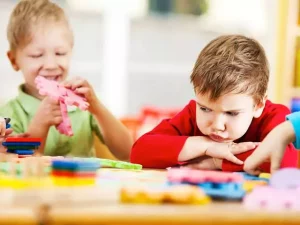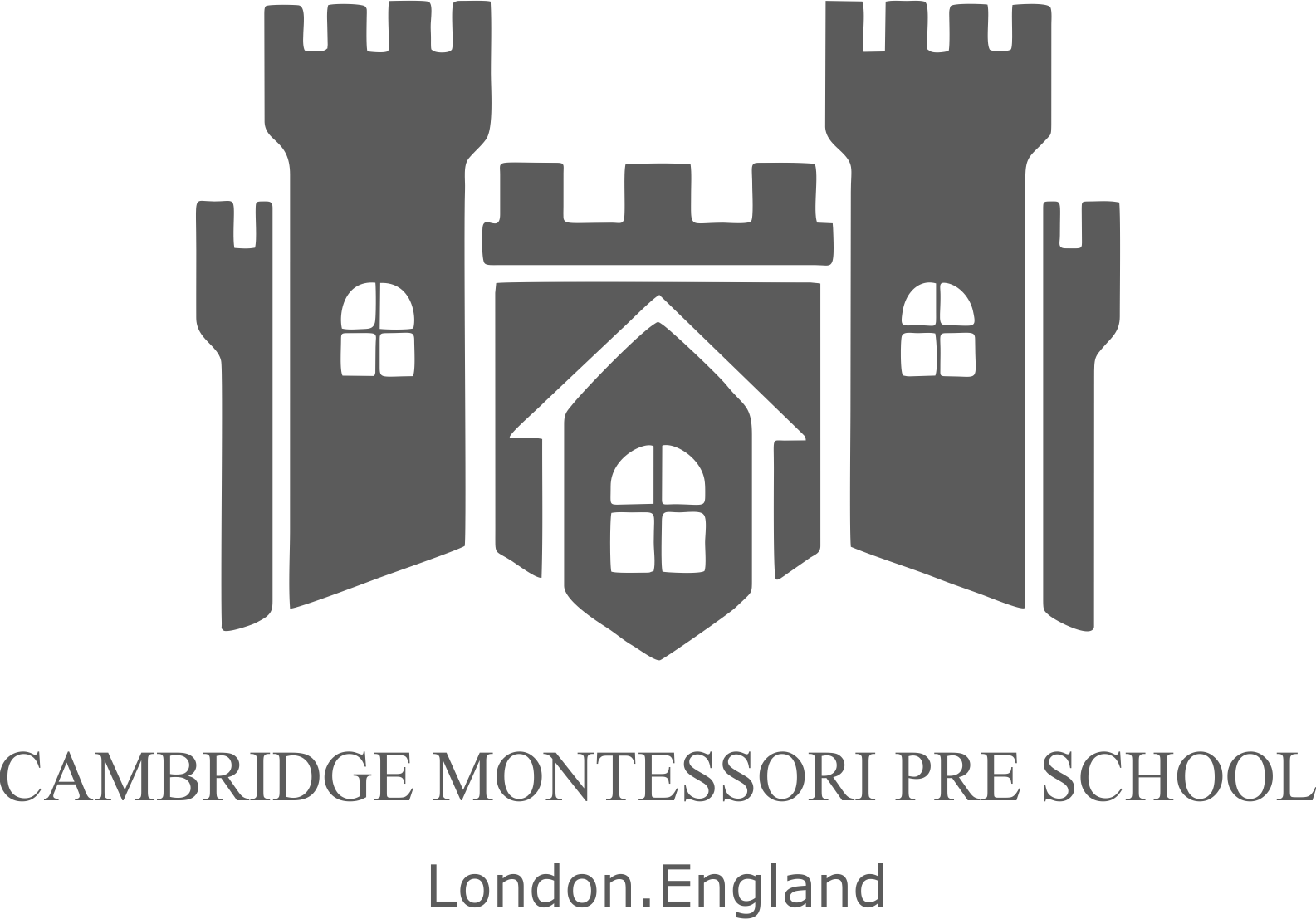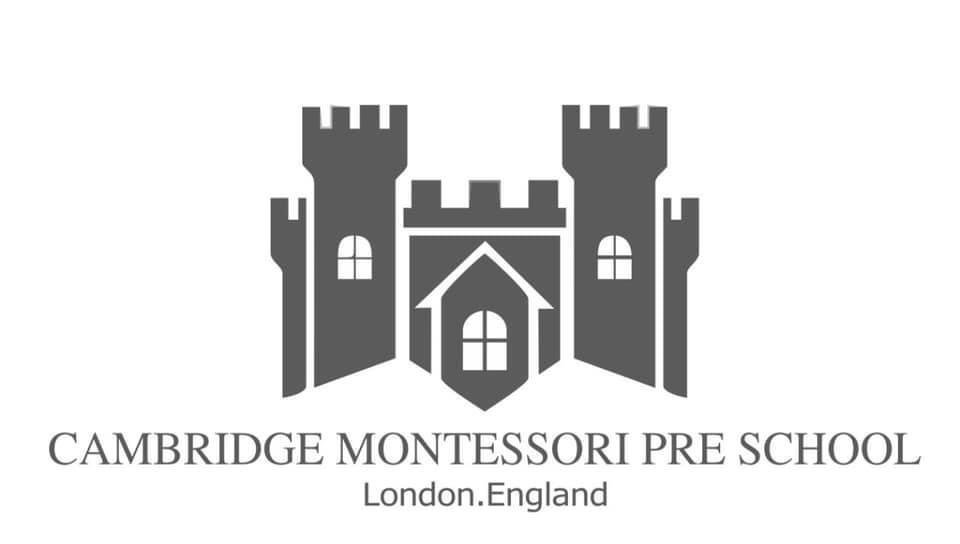Why Cambridge
WHY CAMBRIDGE
Student-centered environment
We put our learners first always. We provide a caring and safe environment in which they are valued and respected, and are able to thrive and be happy. We practice zero tolerance for bullying.
EYFS & BRITISH CURRICULUM
The approach to learning is student-centric, inquiry-based, and concept-driven. Along with the strong academic curriculum CAMBRIDGE MONTESSORI PRESCHOOL lays an equal emphasis on the all-round development of students in sports, performing arts and student well-being.
Teacher’s professional development
We believe our teachers are our strongest asset and are fully committed to investing in their lifelong learning. We develop a systematic semester wise plan for Continuous Professional Development and our teachers participate in various educational workshops, training events, by experts in diverse areas, self-study courses, online conferences and webinars round the year. We also provide on-going in-house training by experienced professionals employed by the school.
Infrastructure
Our excellent infrastructure with spacious classrooms, labs, art and dance rooms, clean and hygienic dining areas, play areas, state of the art auditorium and lots of natural light creates a home away from home for the students. We follow high standards of safety and security on the campus and in school transport.
Safety & Security
A safe and secure environment is a prerequisite for effective teaching and learning. Our three-tier security system is monitored by constant human and technology vigilance, allowing us to regulate and control the footfall into and within the periphery of the school ground. All the areas of the school campuses are strategically designed with multiple exits for contingency and equipped with fire extinguishers and floor evacuation plans displayed on every floor and regularly drilled to combat unforeseen emergencies.
Dining
An airy and well-lit dining space is an inviting space for the students to enjoy the meals on campus. Eating together with teachers promotes eating etiquette and social skills. CAMBRIDGE MONTESSORI PRESCHOOLS provide a wide range of food and menus to suit each palate, keeping in mind the cultural background of students worldwide and exposing them to different cuisines.
Transparency & ease of communication
We look at parents as our co-partners in education and maintain transparency and ease of access. We have a dedicated Parent Relations Team and deploy convenient channels of communication via the Institutional Resource Management (IRP) besides emails, telephone and SMS.
International mindedness
Along with offering international curriculum, we believe in providing practical exposure to our students and teachers to best practices around the world. We develop international school partnerships for collaborative learning, use resources such as Skype in the Classroom, FlipGrid and TED Talks for wider learning opportunities.
Support for mobile families:
Sensitive to the challenges faced by relocating families, we extend our support by accepting admissions during the course of the year and provide extra learning support for such students.
CURRICULUM

The Cambridge Early Years British Curriculum, (for children aged 2 – 8) offers a holistic learning experience that integrates socio-emotional, physical, and cognitive development .
The program acknowledges the unique needs of early learners and recognizes that learners in this age range require approaches to learning and teaching that honor their developmental stage, and the importance of play as the vehicle for inquiry.
In our programme, students explore their environment and learn about their world through play and relationships with peers, teachers, family, and community members.
Teachers are partners, nurturers, and guides who help facilitate the exploration of children’s interests as they work on long- and short-term projects. Cambridge Montessori Preschool cultivates dynamic environments where curiosity, creativity, and confidence flourish.
The Early Years British Curriculum aims to develop inquiring, knowledgeable and caring young people who help to create a better and more peaceful world through intercultural understanding and respect.
To this end our educational institutions work with schools, governments and international organizations to develop challenging programmes of international education and rigorous assessment. These programmes encourage students across the world to become active, compassionate and lifelong learners who understand that other people, with their differences, can also be right.
EARLY YEARS @ Cambridge Montessori Preschool
Key highlights are as mentioned:
Flexible, Joyful, Play Based, Experiential Curriculum
- Flexible curriculum, along with engaging and hands-on activities ensures that children are successful learners.
- Experiential curriculum enables children pursue their own areas of interest and try their hands at problem solving.
- Involvement in hands-on activities stimulates a child’s drive for exploration and discovery.
- Play is encouraged to equip children with skills for life- emotional intelligence, social wellbeing, communication, collaboration, problem solving, creativity and strengthening of fine and grass motor skills.
Focus on Socio Emotional Wellbeing and Language Development
- A strong Social and Emotionalfoundation in early childhood impacts emotional regulation, social relationships and higher cognitive abilities in later years.
- Teachers active agents in nurturing social competence & emotional balance.
- Pretend play, circle time, small group interactions and activity based learning enable children to enhance linguistic skills and express feelings, thoughts, respect opinion of others and develop social skills.
- Soft skills curriculum helps children in regulating their feeling, generate empathy and sensitivity.
Personalized Inclusive & Equitable Opportunities
- Inclusive learning provides all students with access to flexible learning choices and effective paths for achieving educational goals in spaces where they experience a sense of belonging.
- In our inclusive education environment, all children, regardless of their abilities learn together in the same age-appropriate classroom.
- Early intervention is provided and individual learning program created to take students through a classroom readiness program with continued inclusive support thereafter.
Researched Educational Pedagogy followed– by experienced and trained teachers
- Learning centre approach involves constructivist, inquiry based, reflective, collaborative and integrated form of learning.
- Motivating and enriching environment where the children observe, inquire and learn by doing.
- The teacher acts as a facilitator kindling and training minds to think and become lifelong learners.
- Classroom environment, with various resources, encourages the child to learn on their own and as well as from peers.
- Teachers are continuously trained through professional development programs, workshops and seminars.
Parent Involvement
- Opportunities to encourage parents to actively get involved in various school functions and activities like story-telling, book fairs, reading, parent educator conferences and sharing their knowledge with students as well as teachers.
- Grandparents and parents are welcomed to participate in thematic celebrations.
- Parents invited to share their knowledge with the entire CAMBRIDGE MONTESSORI PRESCHOOL spectrum through contributions in School Magazine and various news portals.
SYLLABUS OVERVIEW
HOLISTIC & WHOLESOME LEARNING in 8 LEARNING AREAS
Learning at CAMBRIDGE MONTESSORI PRESCHOOL progresses under 8 key Learning Areas:
Language & Literacy
The course enables learners to:
- develop the ability to communicate clearly, accurately and effectively when speaking and writing use a wide range of vocabulary, and the correct grammar, spelling and punctuation.
- develop a personal style and an awareness of the audience being addressed.
- Learners are also encouraged to read widely, both for their own enjoyment and awareness.
Cambridge EYFS Languages and Literacy program also develops more general analysis and communication skills such as inference, and the ability to order facts and present opinions effectively.
Numeracy
Cambridge EYFS Mathematics encourages life-long enthusiasm for analytical and rational thinking. Learners develop a holistic understanding of the subject, focussing on principles, patterns, systems, functions and relationships. They become confident using mathematics, and develop skills that they can apply to everyday situations.
Cambridge EYFS Mathematics learners:
- engage in creative mathematical thinking to generate elegant solutions.
- improve numerical fluency and knowledge of key mathematical concepts to make sense of numbers, patterns, shapes, measurements and data.
- develop a variety of mathematical skills, strategies and a way of thinking that will enable them to describe the world around them and play an active role in modern society.
- communicate solutions and ideas logically in spoken and written language using appropriate mathematical symbols, diagrams and representations understand that technology provides a powerful way of communicating mathematics, one which is particularly important in an increasingly technological and digital world.
Environmental Science
Thematic / conceptual learning . EVS is taught with an integrated and interdisciplinary approach. Though it bifurcates into Science and Social Science, conceptual, scientific and research based approach still remains.
I STEM
STEM is an acronym for science, technology, engineering, and math. STEM Education, a term initiated by the National Science Foundation, refers to an educational approach which integrates more than one of these disciplines. Science, technology, engineering, and math may seem like lofty subject matter for preschool children. In reality, preschoolers spontaneously engage in STEM activities indoors and out on a regular basis. With a little guidance from us, we can enhance children’s opportunities to engage in STEM learning and develop their critical thinking skills.
While building with blocks, children can build bridges and ramps, incorporating engineering and math. They can add a technology component by researching these on the computer. Outdoors, children could help solve the problem of getting water to a garden they helped to plant, drawing on their science and engineering knowledge. Incorporating the use of children’s garden tools like rakes, shovels, and a wheelbarrow build on this activity to provide an even broader STEM experience.
The possibilities for STEM education are endless. Children love to experiment, combine new substances, build, knock down, collect, sort, and have fun while learning.
FOREST SCHOOLING
Forest school is an outdoor education delivery model in which students visit natural spaces to learn personal, social and technical skills. It has been defined as “an inspirational process that offers children, young people and adults regular opportunities to achieve and develop confidence through hands-on learning in a woodland environment”.
Forest school is both a pedagogy and a physical entity, with the use often being interchanged.
Forest School is invested in holistic development of the participants.
Holistic means ‘whole’ – and Forest School is about practitioners enabling the development of the whole person. This includes:
Emotional development: Periods of reflection are important parts of all forest school sessions and help children to expand their emotional vocabulary and understand how they feel (emotional intelligence).
Spiritual development: This is not necessarily religious, but refers to having a sense of belonging to the wider world, being part of something bigger than yourself, and your connection to nature.
Intellectual development: Knowledge is provided in context with situations as they arise and creates a thirst for learning.
Social development: Consistent meetings with the same group of children means that social connection is gained through shared experiences and goals. Children are able to choose whether to work together or separately.
Physical development: Both fine motor skills and gross motor skills are developed in the outdoor environment, as well as stamina and positive experiences in ‘bad’ weather.
Communication and language development: Working together encourages communication and develops skilful expression of thoughts and ideas, as well as the ability to listen to others. Reflection activities increase a child’s ability to understand and describe their internal state, wants and needs.
KIDS SPACE RESEARCH CELL ( KSRC):
Incorporating outer space activities into the preschool classroom is a great way to inspire future space explorers. It is a fantastic stepping stone into STEAM activities, encourages creative thinking, and appeals to every preschooler’s sense of wonder.
Preschoolers are naturally curious, so incorporating an outer space preschool theme into circle time lessons is a great way to teach about planets, stars, and astronauts. It is also a great time to introduce new ideas and show colorful pictures and hands-on props to the students.
MONTESSORI ACTIVITY
Children learn best through exploring new concepts hands-on. Montessori Activities encourage students to touch, feel, and do as they learn new ideas rather than just sitting at desks and listening to a teacher. As they move about the classroom, students can take part in the environment in a self-directed, explorative way, allowing them to take control of their learning experience.
Hands-on tasks are some of the most essential activities within a Montessori classroom. These activities allow students to use their hands to discover the world around them, keeping them captivated and focused on the subject at hand. A few examples of hands-on activities include pouring and scooping, washing the window, and gluing paper.

